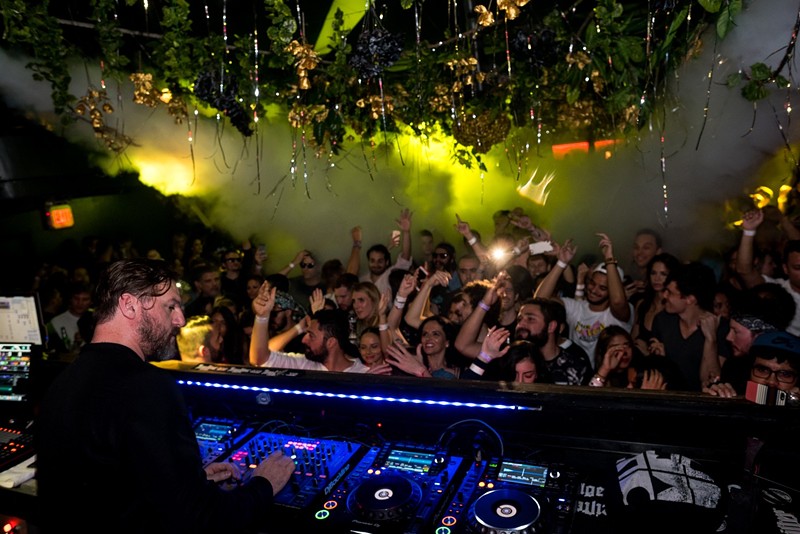For Miami's major nightclubs on the mainland, that moment might have arrived. Last week, one of city's biggest clubs — Heart, which sits smack in the middle of the club district on NE 11th Street, claimed in a lawsuit that the City of Miami is using a bogus and illegal noise-complaint scheme to drive
"Despite its popularity, Heart Nightclub (as well as other nightclubs located on 11th Street) has been facing growing pushback from the Defendant and certain Downtown Miamians, who have set their sights on ridding the Park West District of nightclubs, lounges, and bars in favor of new development, including the Miami World Center, schools, and luxury condominiums," the lawsuit reads. No new citations have been issued since this past May, but the club says the city is still trying to punish Heart for its infractions earlier this year.
Heart's lawyer, Aaron Resnick, declined to comment this afternoon.
This is far from the first time club owners have accused local developers of conspiring to kick the clubs out. For most of Miami's history, the area was mostly an empty wasteland: The clubs occupy rail warehouses built in the early 1900s that fell into disrepair by the midcentury. After the turn of the millennium, clubs began to pop up, and former city Commissioner Arthur Teele later formally turned the area into an "entertainment district" in city zoning code.
But this past March, the owners of Heart, Space, and E11even warned that the developers behind Worldcenter, a massive, mixed-use tower complex and microcity containing retail, office, and living space, want the clubs gone.
"The $1.6 billion
According to the folks who run Heart, the city has two types of noise complaints: one for private homes and another for businesses. If you run a bar or business, you're barred from blasting music that disturbs your neighbors from the hours of 11 p.m. to 7 a.m., but single-family homes and residences are instead regulated round-the-clock. Plus, according to the residential rule, for example, if thumping bass music is "plainly audible" more than 100 feet from the property, it's in violation of city law. (Heart's owners also complain it's impossible to define what "plainly audible" means, so city inspectors can basically claim whenever they want that the nightclubs are violating the law.)
There's an obvious reason the two codes exist: It's nearly impossible for a megaclub such as Heart to keep things quiet 24 hours a day. In 2010 and 2017, city lawyers Julie Bru and Victoria Mendez, respectfully, admitted the harsher law didn't apply to Heart. But regardless, the club claims the city is intentionally
According to the suit, at least, the folks at Heart say the barrage of complaints this year has been driven by a small group of well-connected real-estate speculators, including one local investor who emailed the city earlier this year to ask whether the noise codes apply to nightclubs.
Both Heart's owner — Golden Owl Entertainment LLC — and the landlord who owns the property are suing to invalidate the entire "residential" noise-complaint ordinance. They also allege the city is violating the constitutional due-process rights protected by the 14th Amendment.
"It should be noted that in all the violations issued in the Park West District in 2017," the suit says, "there is not one instance in which sound/music was being heard in a dwelling, hotel, or residence."












